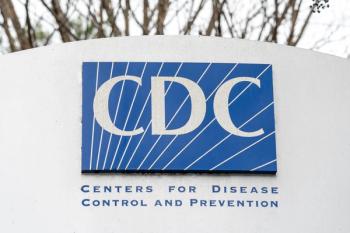
Roflumilast cream 0.05% is being studied for mild to moderate AD in infants aged 3 months to under 2 years in a new phase 2 trial.

Roflumilast cream 0.05% is being studied for mild to moderate AD in infants aged 3 months to under 2 years in a new phase 2 trial.

New phase 3 data support marstacimab’s efficacy and safety in treating hemophilia A or B with inhibitors, expanding its potential use.

Mycoplasma pneumoniae caused 1 in 2 pediatric pneumonia hospitalizations in 2024, with sharp increases seen across all age groups, according to a recent CDC MMWR report.

The final recommendation sign off decision will go to HHS secretary Robert F. Kennedy Jr.

Lebrikizumab demonstrated efficacy and safety in patients with skin of color and moderate to severe atopic dermatitis in the ADmirable trial. Trial investigator Andrew Alexis, MD, MPH, reacts.

The American Academy of Pediatrics will continue to hold its own childhood vaccine schedule, as it has since the 1930s.

Donna Hallas, PhD, PPCNP-BC, CPNP, PMHS, FAANP, FAAN, shares her thoughts on how PNPs can implement evidence-based strategies to encourage parents to vaccinate their children.

Silver diamine fluoride and atraumatic restorative treatment stopped most cavities in NYC children, showing school-based care can reduce decay.

The FDA has approved belimumab (Benlysta; GSK) autoinjector for children with lupus nephritis, expanding at-home treatment.

Frequent exposure to cannabis and e-cigarette posts on social media is linked to increased teen cannabis and dual substance use, according to a study published in JAMA.

AAP updates clinical guidance to help pediatricians navigate genetic evaluation of children with global developmental delay or intellectual disability.

A 40-year study found that higher third-trimester glucose levels in insulin-dependent pregnancies were tied to increased obesity risk in adult offspring.

Prenatal PFAS exposure was linked to higher adolescent blood pressure according to a recent study.

Get caught up with Contemporary Pediatrics! This list helps you navigate our top stories from the week, all in one place.

The FDA has extended the review of ruxolitinib for atopic dermatitis in children 2 to 11 years to September 2025 to evaluate new CMC data.

Pediatric dermatologist John Browning, MD, offers practical sun safety tips and guidance for selecting sunscreens, emphasizing the importance of choosing formulations that work for sensitive skin.

Caffeine may protect infants from SIDS by reducing oxygen drops, offering a potential new tool alongside safe sleep practices, a recent study suggests.

Octavio Ramilo, MD, joins us once again to discuss potential benefits of RSV vaccination beyond disease prevention and to explain how to speak with patients about vaccines and uptake.

In this video interview, Michael Daines, MD, explains phase 3 data for Panzyga (Octapharma) for pediatric acute- onset neuropsychiatric syndrome (PANS).

John Browning, MD, highlights why pediatricians should feel comfortable prescribing recent nonsteroidal medications and what questions to ask patients in the office.

The patient described the headache as “pressure-like,” episodes that occurred for 1 to 2 hours with high severity.

Lenacapavir is the first twice-yearly option available in the US for those who need or want PrEP, according to Gilead Sciences.

Currently, omaveloxolone (Skyclarys) is approved to treat adults and adolescents aged 16 years and older impacted by FA.

The American Academy of Pediatrics urges clinicians to offer confidential, adolescent-centered contraceptive care using evidence-based, equity-informed approaches.

In this video, the last in a 3-part series, panelists discuss future directions in the field and the importance of multispecialty collaboration.

In this video, part 2 in a 3-part series, panelists discuss clesrovimab's recent approval and gaps in clinician education.

In this video, the first in a 3-part series, panelists discuss recent advancements in RSV management.

The federal agency has assigned a target action date of January 31, 2026, for a decision.

Garadacimab-gxii is the only treatment to target factor Xlla for prophylactic use to prevent attacks of HAE in patients aged 12 years and older.

Though the decision will not meet the June 17, 2025, target date, the federal agency anticipates a decision within approximately 4 weeks.